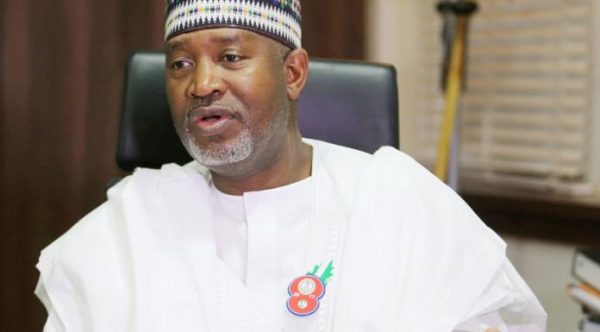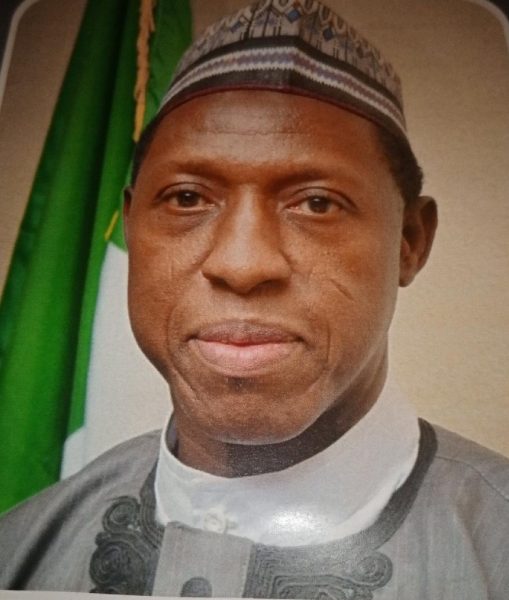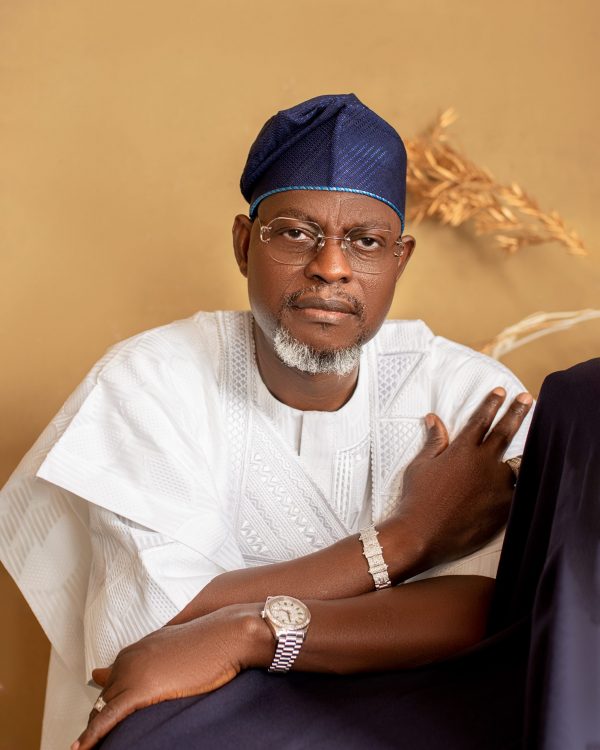Aviation Was Nigeria’s Fastest Growing Sector Prior To COVID-19 – Sirika

By Ayoola Olaitan
The Minister of Aviation, Senator Hadi Sirika was a guest on Nigeria Television Authority (NTA) recently. He highlighted the achievements in Nigeria’s aviation industry in the last five years of his administration. Sirika also gave detailed responses on pertinent issues in the industry and unveiled some of the Ministry’s future plans.
Enjoy it;
As the longest serving Minister of Aviation, looking at aviation industry and in line with President Muhammadu Buhari five years in office what has changed in the aviation sector?
Thank you, for the opportunity to discuss the Civil Aviation under the Buhari government. Well the truth is when we came into power in 2015, we had a roadmap and we discussed it. We saw what needs to be changed in Civil Aviation in Nigeria at the time. Gratefully, the president approved the roadmap and the roadmap has components in it but there were some interjecting issues regarding the roadmap.
Part of the roadmap was to concession our airports to put in entrepreneurs who can improve the quality of service delivery. Also, the National Carrier questions must be answered, we saw the need to have an airline that is commensurate and equal to the task in Nigeria by our population and geography and our need for transportation by air.
The Aerospace University is designed to go into research and development of Civil Aviation which is Aerospace. We know that the capacity of people needs to be improved to be able to have a sector that is reputable.
We also thought of the aerotropolis which are cities around the airports, the idea has been conceived before but nothing was done about it. We thought that our airports especially the major ones would grow to become free zones where commercial activities will grow. Airports should not be described as shopping malls while others see it as points of landing and taking off. Airports are cities all over the world and they are center for commerce and trade, tourism and gateways into countries. They are export points and manufacturer’s points.
Airports development has changed and we tried to respond to that as part of our roadmap. We further thought that aviation business has been so difficult because of the lack of access to equipment and lack of access to finance. We thought that there should be a leasing arrangement with leasing companies that will offer people equipments that they could get at a very cheap rate.
Maintenance Repair Overhaul (MRO) center which we didn’t have in Nigeria despite having population of over 200 million people with other Africans that make about 600 million people. That is about twice the population of the United States of America (USA). So having a very robust MRO with about 2,000 planes around this region wouldn’t be a bad idea because you won’t have to go to Europe to do checks that require taking foreign exchange out. Even, fairing an airplane in and out cost quarter of a million dollars and this is a huge loss to Nigeria. The President approved that as part of the roadmap.
The ministry is set to review the Civil Aviation acts. The Civil Aviation Act since 1963 when Jaja Wachukwu was Minister of Aviation, that was the first time the Act was established and was never reviewed until I got to House of Representatives in 2003. I was the Deputy Chairman Committee on Aviation. I picked up the Act, championed it and got it reviewed but we delivered the review in 2006 very close to the election we didn’t do a very detailed job. I must admit we just did what we could at the time and delivered the Act. Now, we have had it reviewed it and happily it has passed 2nd reading it now left for public hearing before it becomes a law.
Most of our infrastructure has decayed and not safe for operations. At a time when oil prices are falling from 140$ per barrel to less than 30$ and lesser production costs, that was what we took over as an administration. Nigeria owed $600 billion to airlines doing business in the country in 2015. Looking at these challenges, we decided to go pick those critical infrastructures to develop and build them as our starting point.
We thought that implementing the roadmap will see an increase in the number of people flying as they would use aviation as an alternative when it is efficient, safer and faster. We grew the passenger numbers from 8 million to 18 million today in five years and this is very significant.
Fastest Growing Sector
The aviation industry from the back side has become the fastest growing sector in the country today this according to the Nigeria Bureau of Statistics (NBS) figure and Federal ministry of Finance and Budget Planning.
The Civil Aviation in Q4 in 2018 became the 2nd fastest growing sector in the country due to the fact that the roadmap was implemented correctly. In 2019 Q4 it became the fastest growing sector in the country today and this according to the NBS and Federal Ministry of Budget and National Planning figures. Most of the time these things are not there because passengers don’t see what we are doing in Civil Aviation except terminals building and national carrier issue.
Abuja Runway Repair
There are several things we have done to improve on our safety to make people to fly, but most of these things cannot be seen. For example, we installed Category 3 landing system somewhere in the airport. The passengers can’t see this but we know what it is and the importance to flying, people are happy to fly because we made it efficient.
However, people remember things like the Abuja closure because the runway was packed up, it was a complete reconstruction of the runway that was done. I remember we spent months to be able to convince Nigerians that we should close the runway. It took us months to convince Nigerians but we spent just two minutes to convince the President.
Looking at state of the runway with the bad state we didn’t want it to continue. If anything had occurred on the then runway over 500 hundred lives would have been lost. I would have been so ashamed of myself and not have face in the society. I explained my view to Mr. President with pictures of the situation in the Abuja airport and he asked what the solution is? I told him we needed to close the runway and repair it. The president thought for some seconds and he said to me, “Hadi go and plan very well” and I obeyed. Today, we are all happy about the runway, we gave the duration for the construction and we deliver it short of two days.
Aviation Training School, Zaria
Another thing dear to my heart is where we met the training school in Zaria and where it is today. It has become the center of excellence today for Africa. International Civil Aviation Organization (ICAO) conducted audit around the world of all the schools in aviation and from what we have been doing it has become the center of excellence for Africa, offering one of the best training with the highest number of ICAO training courses in the entire world today.
We went to the President to explain that we were approving on quarterly basis $400,000 to train our fire fighters in Cameron. I realized this didn’t make sense and didn’t bode well for the country. We had to make inquiry on the cost of the fire fighting simulator as fire fighting is very fundamental equipment in every airport. If there is no fire fighter in an airport, the airport is closed. This training is pertinent and the President gave approval for us to get fire fighting simulator. So, we stopped paying half a million quarterly to go to Cameroon to train. Today, we have that fire fighting simulator that cost $5.2 billion in Zaria fully completed and training will begin soon.
We also pointed out that airplanes used in training pilots make use of aviation gasoline which is quite expensive. We suggested that we bring in Diamonds that are using Jet A1 that will bring about 50 percent cut on cost of training. Today we procured eight of them and six have been delivered and two are on their way.
There is simulator to train our pilots because our pilots go abroad to have their mandatory training that comes up every six months. The project was started by previous administration and it was less than 20 percent which we suggested to the President that we should convert it to something else but he refused insisting all the project started by previous administration must be completed and now that simulator is currently sitting in Lagos port we are trying to clear it. This will be installed in the simulator building that has been built. The simulator has been purchased for $21 million, once it is cleared it will be on its way to Zaria from Lagos and installed for training to commence.
FAAN Restructuring
When we came with the roadmap we took it to stakeholders here in Abuja with Lagos about 500 people attended. We discussed it and got approval. Restructuring of agencies, for example when we came on board, the Federal Airports Authority of Nigeria (FAAN) had 45 General Managers and there are only 22 airports which implies that each of the airports had two General Managers including Akure and Katsina. A General Manger is on Level 17 with Personal Assistant, Special Advisers and vehicles. We saw this as wrong because of the heavy cost.
So, we restructured and cut them from 45 to 15 which is manageable. With the way the business is done at FAAN we thought that it is not been managed well because it ought to be a business.
The Lagos airport you see was built for only 200,000 people yearly, in 1979. Today Lagos airport alone is doing 8 million passengers annually and I can guarantee that it will get to 10million in the same Lagos airport that was used by 200,000 people.
Airport Concession
On the concession, we are giving it to private hands not to sell but to concession. We are currently at the tail end of it and we have appointed transition advisers and the Infrastructure Concession Regulatory Commission (ICRC) which is the regulator of the transition. We have done the business skills and we will be going to market to find those who will handle it properly. We will definitely concession these airports to see more investments and bring more value to our airports. We will be finishing Lagos in few months also Kano in few months and others.
Review of Aviation Laws
On the review of the aviation law, the bill is still between the ministry and the law makers. I told them that we cannot pass this bill into law unless we put it to public hearing via stakeholders’ conferences. We have pleaded with them that we are going to send it to them ahead of time and this is the first time any minster is doing that. We will send it ahead of time for study and give them the numbers of weeks to make critic of it and bring it back and we seat with them to agree how the industry will be run because the industry is for them not for government. Afterwards, we would take it to the National Assembly and they can pass it into law.
Economic Regulation
We have responsibilities for economic regulation to be able to get those airlines to know that if they are healthy financially in the first place which speaks also as volume of safety. We are going to strengthen the economic regulation within the context of Civil Aviation in Nigeria. It is going to be of international standards and we would partner with them to ensure the industry is getting value for its money.
Our focus really is on safety and doing things right. For instance, there is no administration that makes the effort to satisfy our airports according to the international standards except this government and we are able to satisfy two airports, Lagos and Abuja. We have been clamoring for it long ago and nobody did but this administration was able to achieve it. We are already working on getting Kano and Port Harcourt airports satisfy and basically all airports in the country. This speaks volumes of our concern for safety and doing things right in aviation.
However, the airlines are facing several challenges which also includes governance as well as lack of capacity. The Nigeria airlines are backed with money bags who think that 90 passengers multiply by 25,000 equals to their profit and they see it as huge money and get into aviation business but later find out that it is not that simple. A single engine change can take away profits that have been made in the last five months by an aircraft.
Airports Viability
I strongly don’t believe that there is any airport that is not viable. It depends on the activities you are able to create around the airport. For example, when I was in the opposition in 2006, Late Musa Yar’Adua was the governor of Katsina and he called me to deliver a lecture on the economy of Katsina. He gave me tourism, agriculture and transportation to speak on, I went there with only 3 slides and I said to him that there are 37 dams in the state why don’t you produce chili tomatoes and onions and use your airport to export them that in five hours they will be in London, Paris, etc.
I went further to say a hand full of tomatoes is 10 pounds in England and a whole basket then was N200. You make foreign exchange as airplanes are going and coming, you begin to service them from Katsina. You can use an activity around the airport create it, look at Akure airport it was dead but today we are doing two flights a day. So it depends on the activities you create around the airports. The airport is no longer a place to land and take off.
We must deliberately create activities around the airports and that is why we are considering the concession. We won’t just handover the airport; we would analyze and look at the opportunities around the airport. As the entrepreneur who is coming forward, you should also think about this and we are partnering to create activities so the airport becomes viable.
Managing Airplanes
If you want to get an airplane, and you get one that is 18 years old; you shouldn’t compare it with someone who bought a brand new plane. The 18 years craft will definitely consume more fuel about 30 percent fuel used on the same route. How then do you compete when fuel is 40 percent of airline operations cost?
The idea of having a national carrier is because there is market in Nigeria with 200 million people who travel year in year out. Aviation is a friend of population and that why we are taking advantage of our population. Nigerians are naturally mobile; they travel for nothing so we thought we are good for a very robust carrier. That is why we chose the option to have a private sector driven airline, it means that those who are investing in the sector can come and partner in the new venture to create a new national carrier. This doesn’t mean that their airlines will die, rather they should tweak there business models, get knowledgeable hands that can run it well and give them the structure.






